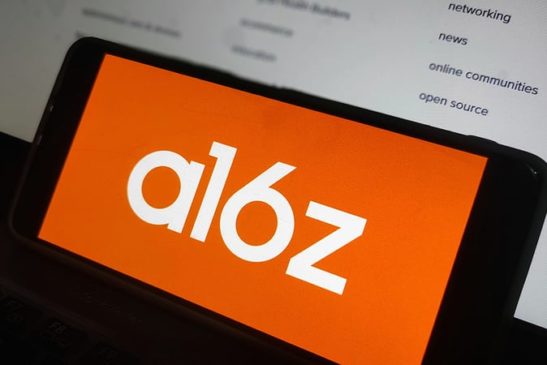At present, the training and operation of AI models is restricted to large tech companies. Crypto has the potential to help create multi-sided, global, permissionless markets where anyone can contribute data and be compensated for it.
Venture capital firm Andreessen Horowitz (a16z) has released its “big ideas” for 2024, with its crypto arm composing a list of trends to look forward to in crypto in 2024. The list contains trends that the firm’s crypto partners are looking forward to across sectors such as artificial intelligence (AI), decentralization, and modular technology. We spotlight some of them here.
A New Era of Decentralization
Decentralization has been lauded for its use in democratizing systems, fostering competition and ecosystem diversity, and allowing users more choice and ownership. In reality, achieving decentralization at scale has been a challenge, especially when compared to the efficiency and stability offered by centralized systems.
a16z Crypto’s General Council and Head of Decentralization Miles Jennings claimed:
“Over the past few years, more best practices for decentralization have been emerging. These include models for decentralization that can accommodate applications with richer features; and also include methods such as DAOs embracing Machiavellian principles to design more effective decentralized governance that holds leadership accountable.”
Jennings predicts that with the development of such models, we can expect unparalleled levels of decentralized coordination, operational functionality, and innovations.
NFTs Become Ubiquitous Brand Assets
Popular brands such as Starbucks, Nike and Reddit have used NFTs as collectibles and as part of loyalty programs. According to a16z Crypto Research Partner Scott Duke Kominers, brands can use NFTs “to represent and reinforce customer identity and community affiliations; bridge physical goods and their digital representations; and even co-create new products and experiences alongside their most dedicated enthusiasts.”
Kominers predicts that NFTs will become ubiquitous as digital brand assets in the coming year.
The Shift from Play-to-Earn to “Play-and-Earn”
a16z General Partner Arianna Simpson notes that play-to-earn (P2E) is “increasingly morphing into “play-and earn”, setting an important distinction between gaming and workplace. The dynamics of how resulting gaming economies are managed will continue to shift as we see P2E evolve beyond its initial growing pains. Ultimately, however, this will not be a separate trend and will just become part of games.
Improved User Experience (UX)
Eddy Lazzarin, Chief Technology Officer at a16z Crypto, reveals that “developers are actively testing and deploying new tools that could reset frontend UX (user experience) for crypto in the year ahead.”
One such tool is automatically, cryptographically-generated passkeys that simplify signing into websites and sites across devices. Others include programmable, easy-to-manage smart accounts, embedded wallets built into an app for seamless onboarding, MPC (multi-party computation) that helps third parties to support signing without custodying users’ keys and advanced RPC (remote procedure call) endpoints that predict user needs and fin in the gaps.
The Rise of the Modular Tech Stack
A16z Crypto General Partner Ali Yahya states that while monolithic architecture allows deep integration and optimization across what would otherwise be modular boundaries, causing better performance initially, an open-source, modular tech stack is more advantageous. He writes that modular tech “unlocks permissionless innovation; allows participants to specialize; and incentivizes more competition”.
Democratizing of AI Innovation through Blockchain Technology
At present, the training and operation of AI models is restricted to large tech companies. Crypto has the potential to help create multi-sided, global, permissionless markets where anyone can contribute data and be compensated for it. Blockchain can also be used to combat misinformation that could potentially affect society, culture, politics and the economy by, among other things, tracking the origin of online content.
Blockchain-Driven Integrity in AI-Generated Games
Carra Wu, an Investing Partner at a16z, notes that when core game components such as lore, terrain, narrative, and logic are all AI-generated, we will need a way to guarantee that the game maker was credibly neutral. Crypto, with its ability to “understand, diagnose, and penalize when something goes wrong with AI,” helps in this regard.



